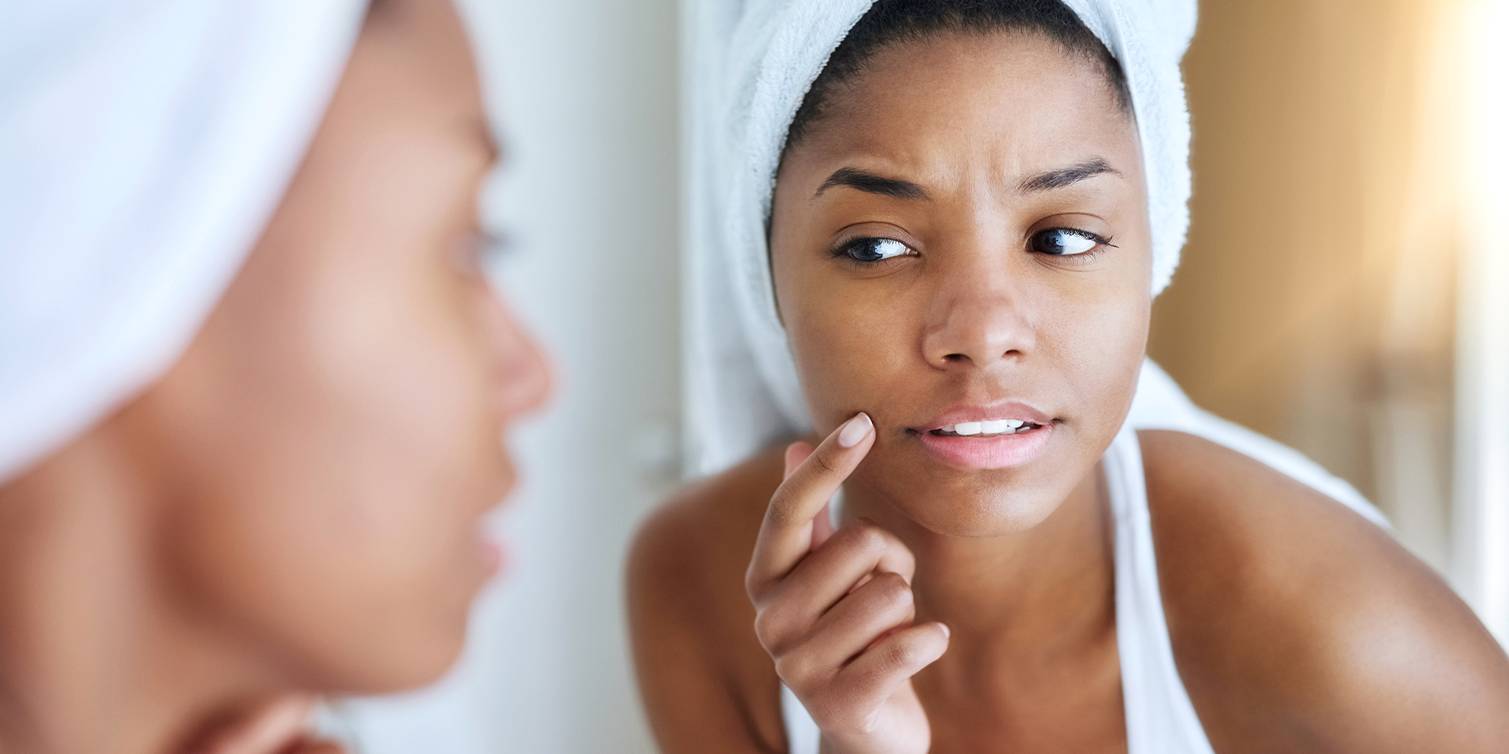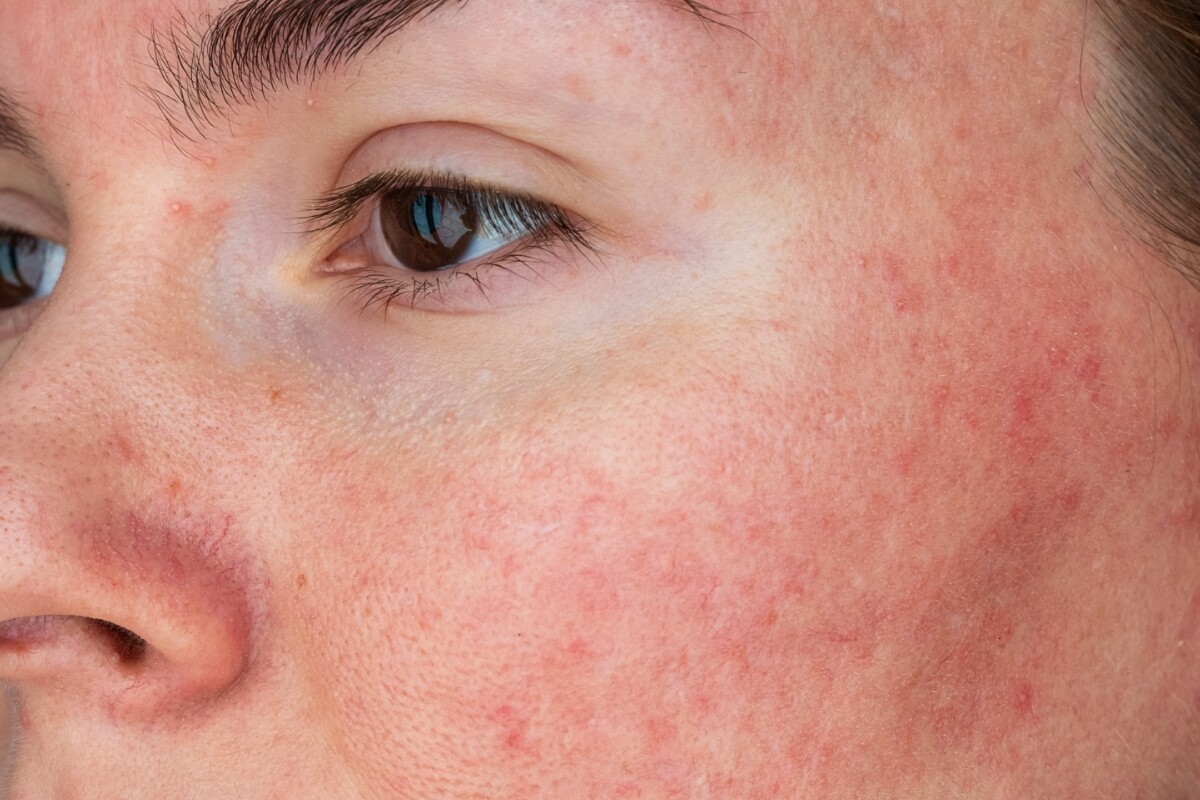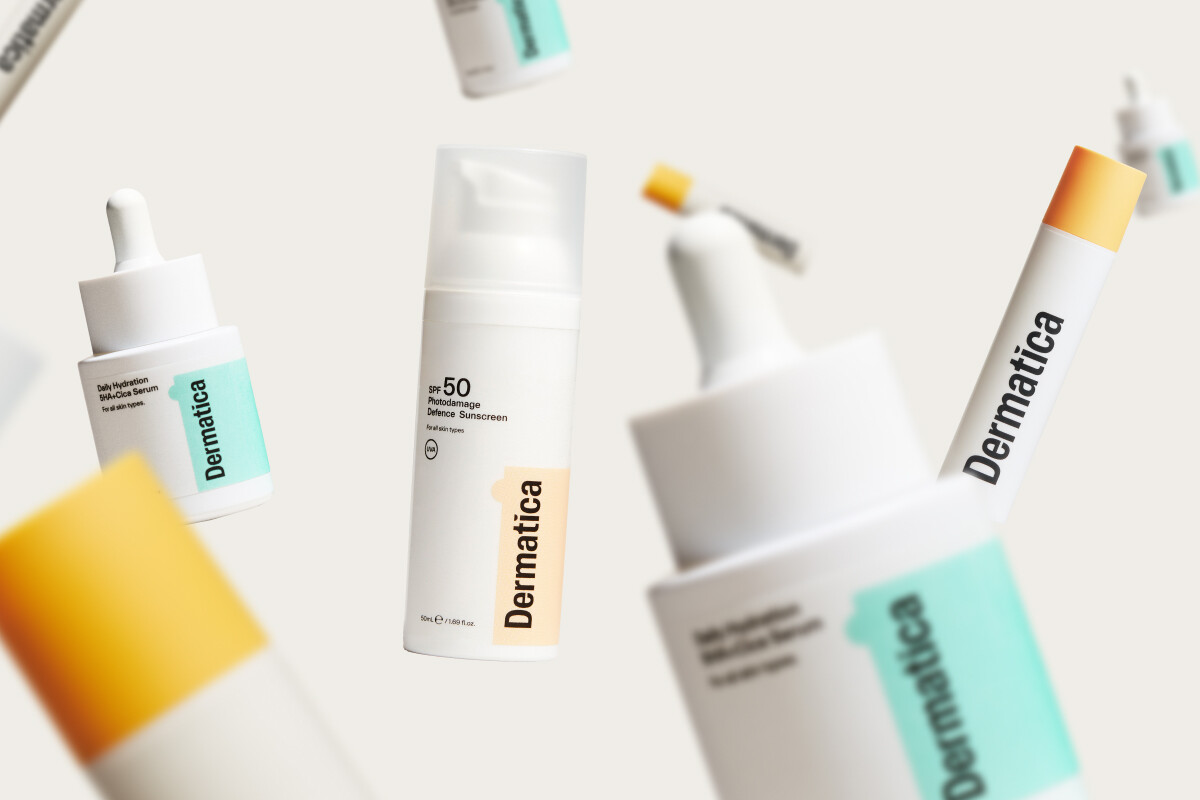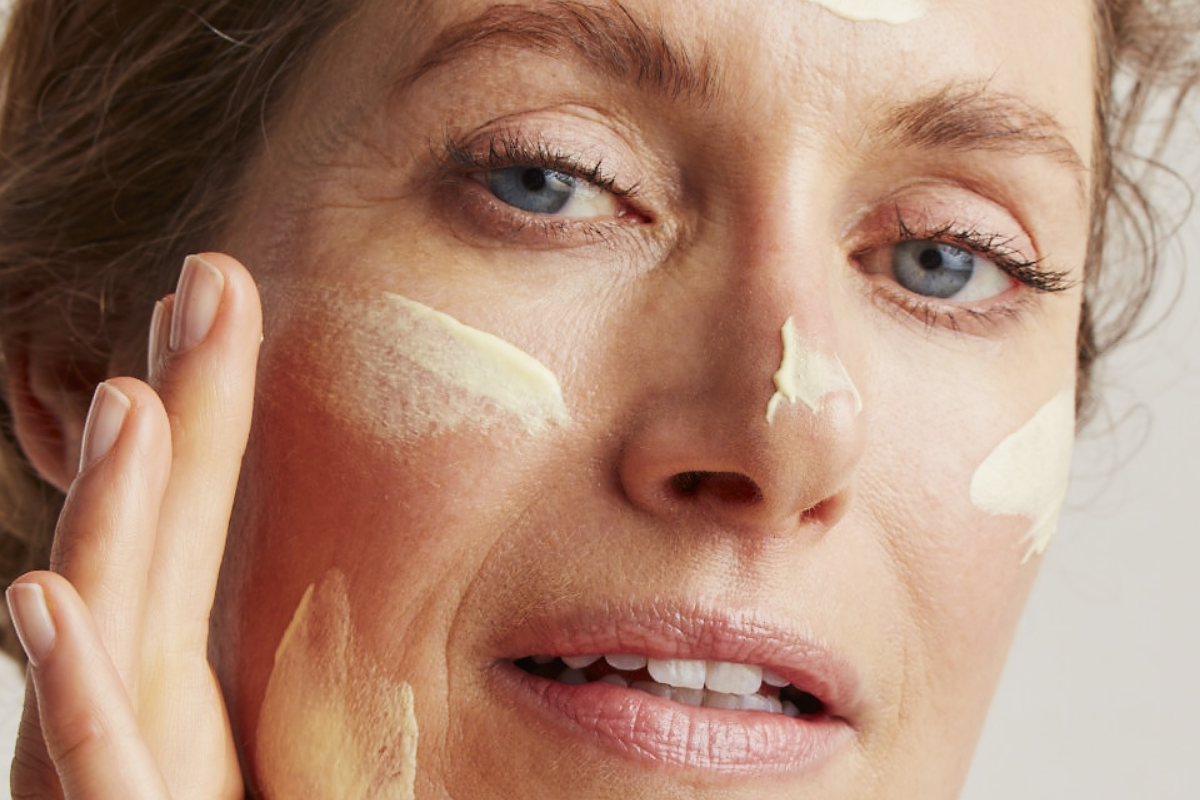It’s no secret that vitamin A derivatives — also known as retinoids — are the gold-standard of anti-ageing hero ingredients. Prescription-strength retinoid tretinoin isn’t just effective at banishing fine lines and wrinkles, but acne, blackheads and hyperpigmentation, too. However, when you begin retinoid treatment, it’s common to experience some side effects while your skin is adjusting to the new active ingredients.
And let’s face it, skin irritation can be…well, irritating. Luckily, this guide is filled with information and tips to reassure you that side effects are completely normal, and even necessary for seeing the benefits of retinoids.
The science behind irritation
So, why do you get irritated skin when you first start using retinoids?
Well, retinoids change the way your skin behaves. One of their main talking points is that they trigger higher cell turnover — that’s the rate at which your cells replace themselves. This affects the top layer of your skin (the epidermis) as well as the deeper layers (the dermis. Increased cell renewal is great news if you’re looking to shed dull skin, reduce fine lines and get a youthful glow, but it can take some getting used to. At first, your increased skin cell renewal rate can lead to irritation. Some common indicators of irritation are: redness, itchiness, tingling sensations, dryness or peeling.
You’re more likely to experience irritation if you have a sensitive skin type, and less likely if your skin is resilient.
It’s likely that you have sensitive skin if:
- Your skin is often dry, and needs lots of moisturiser
- Your skin feels tight when you use a foaming cleanser or soap
- You have a history of eczema, hives, or reacting to skincare products
On the other hand, with resilient skin types:
- Your skin tends to be oily
- You can use any skincare products without a reaction
- You have no history of dryness, eczema or hives
How long does irritation last?
There’s no need to worry if you experience some mild irritation at the start of your retinoid treatment. After all, retinoids are some of the most powerful actives you’ll find in skincare products. Just remember that irritation shows that your skin is responding to the treatment, and your cell turnover is already increasing. Likewise, you shouldn’t worry if you don’t experience side effects at all — your treatment is still working!
Retinisation — the fancy word for your skin getting used to retinoids — only lasts around 4 weeks. From 4–6 weeks you’ll start seeing results if you’re treating acne breakouts, and from 8–12 weeks you’ll begin to notice anti-ageing benefits. Every skin journey is different, though. Some people won’t experience irritation at all, others will have slightly longer or shorter results timelines. Just be patient, stick with it and you’ll reap the benefits!
Tips for treating irritation
The easiest thing you can do to minimise and treat irritation is keep your skincare routine simple and consistent. Gently cleanse your skin in both your AM and PM routines, and apply your topical retinoid at night after cleansing. Use a nourishing moisturiser afterwards — this will seal in your serums, keep your skin hydrated and combat any flaking or dryness. It’s really important that you apply a broad-spectrum, high-factor sunscreen daily, too (at least SPF 30). Not only will it protect any irritation from sunburn, but it prevents the very UV damage your retinoids are undoing. For more advice on layering your skincare products, check out our blog post.
Remember we said your skin type affects the levels of retinoid irritation you experience? Well, you can actually work to develop a more resilient skin type to help prevent irritation in the first place. The trick is to maintain a healthy skin barrier — check out our blog post for some steps you can take.
Buffering is an application technique you can use to reduce irritation. It’s simple — just apply a thin layer of moisturiser before your topical retinoid, then follow it up with more moisturiser as usual. This forms a slight barrier between your skin and the retinoid, diluting it and lessening any irritation. People with dry skin types particularly benefit from doing this.
Don’t hesitate to contact us if you need some extra guidance. Our dermatologists can reduce the strength of your formula, if needed, or advise you to drop it from your routine and restart the treatment gradually to avoid overwhelming your skin. We’d definitely recommend you take a break if you have a visible injury, like a cut or scrape, as layering retinoids over a wound can cause severe irritation.
Irritation vs reactions
If you follow our advice on reducing irritation and it doesn’t subside, your symptoms are severe or they appear suddenly, that may be an indicator of an adverse reaction. This can happen with any skincare product, not just retinoids, but we’d recommend seeking advice from your doctor or dermatologist if you have concerns about this. You should also notify our clinical team of any reactions you might have — just upload pictures of any irritation directly to your dashboard and we can advise you.
We’re here to help
We’re with you for every step of your skincare journey, so please don’t hesitate to contact us if you have any questions or concerns. We’ll check in with you ourselves to see how you’re getting on, but feel free to reach out if you’re struggling with side effects. You have unlimited access to consultations with our clinical team throughout your treatment plan, and we’ll be more than happy to adjust your formula or application instructions to suit your skin’s needs. Once your skin is settled, we’ll begin increasing the concentration of retinoids in your formula until you see your desired results.
Ready to get started? Get a free consultation today to discover our personalised skincare formulas.
Dr Lynn Sydor
Dr. Lynn Sydor is a board-certified dermatologist with 30 years of experience in the field. Dr. Sydor is a member of the American Academy of Dermatology, the California Society of Dermatology and Dermatologic Surgery, the Pacific Dermatologic Association, and the California Medical Association.





